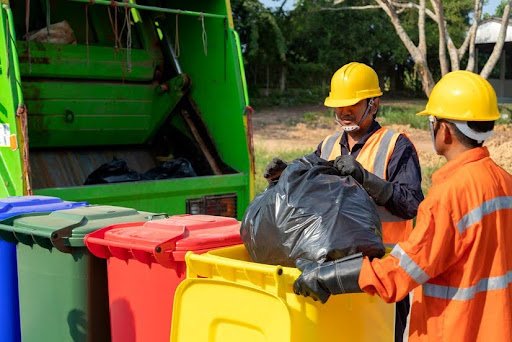Maximizing Efficiency: The Ultimate Guide to Choosing and Using Skip Bins

In the realm of waste management, skip bins have emerged as indispensable tools for businesses and individuals alike.
Whether you’re undertaking a renovation project, managing commercial waste, or conducting a large-scale cleanup, skip bins offer a convenient and efficient solution for waste disposal.
However, to truly harness the benefits of skip bins, it’s essential to understand how to choose the right one and utilize it effectively.
The Basics of Skip Bins
Hiring skip bins in Adelaide Hills, also known as dumpsters or roll-off containers, are large, sturdy containers designed to hold and transport various types of waste materials.
They come in a range of sizes to accommodate different needs, from small domestic projects to major construction sites.
Skip bins are typically made from durable materials such as steel or reinforced plastic, ensuring they can withstand the rigors of waste disposal.
Choosing the Right Skip Bin: Factors to Consider
Selecting the appropriate skip bin for your requirements is crucial to maximizing efficiency and minimizing costs. Several factors should be taken into account when making this decision:
1. Size Matters
The size of the skip bin you choose depends largely on the volume and type of waste you anticipate generating.
Opting for a bin that’s too small can result in multiple trips for disposal, leading to wasted time and increased expenses.
Conversely, selecting a bin that’s too large may lead to unnecessary costs. Assess your needs carefully and choose a size that strikes the right balance.
2. Type of Waste
Different skip bins are designed to handle specific types of waste, ranging from general household rubbish to construction debris and hazardous materials.
It’s essential to accurately identify the type of waste you’ll be disposing of to ensure compliance with regulations and proper disposal practices.
Selecting the appropriate bin for your waste stream helps streamline the disposal process and minimizes environmental impact.
3. Accessibility
Consider the location and accessibility of your property when choosing a skip bin.
Ensure there’s sufficient space for the bin to be placed safely and conveniently, allowing for easy loading and collection.
Factors such as overhead clearance, driveway width, and proximity to obstacles should be taken into account to avoid any complications during delivery and pickup.
4. Permits and Regulations
Before arranging for a skip bin to be delivered, it’s essential to familiarize yourself with any permits or regulations that may apply to waste disposal in your area.
Certain types of waste, such as hazardous materials or construction debris, may require special permits for disposal.
Failure to comply with regulations can result in fines and legal consequences, so it’s important to do your due diligence beforehand.
Maximizing Efficiency: Tips for Using Skip Bins Effectively
Once you’ve chosen the right skip bin for your needs, maximizing efficiency during the waste disposal process is key. Here are some tips to help you make the most of your skip bin rental:
1. Organize and Sort Waste
Before loading the skip bin, take the time to organize and sort your waste into different categories.
Separating recyclable materials from general waste not only helps reduce landfill waste but also makes the sorting process more efficient when the bin is emptied.
Labeling bins or using designated areas for specific types of waste streamlines the disposal process and minimizes contamination.
2. Optimize Loading Techniques
Efficient loading of the skip bin can maximize its capacity and minimize wasted space.
Start by placing larger, heavier items at the bottom of the bin, distributing weight evenly to prevent overloading or imbalance.
Break down bulky items into smaller pieces to optimize space utilization and ensure efficient packing.
Avoid leaving empty spaces or gaps between items to make the most of the available volume.
3. Avoid Prohibited Items
Be mindful of the types of waste that are prohibited from disposal in skip bins.
Items such as asbestos, chemicals, batteries, and certain electronics require special handling and disposal methods due to their hazardous nature.
Check with your skip bin provider for a list of prohibited items and make alternative arrangements for their disposal if necessary.
Failure to comply with regulations can result in additional charges or refusal of service.
4. Monitor Fill Levels
Keep an eye on the fill level of the skip bin throughout the duration of your project.
Overfilling the bin beyond its capacity not only poses safety hazards but may also incur additional fees for overloading.
Conversely, underutilizing the bin wastes valuable space and may result in higher costs than necessary.
Communicate with your skip bin provider to arrange for timely pickups and replacements as needed to maintain efficiency.
Conclusion
In conclusion, skip bins offer a convenient and efficient solution for waste disposal across various applications.
By choosing the right skip bin size, adhering to regulations, and employing effective loading techniques, you can maximize efficiency and minimize costs associated with waste management.
Whether you’re tackling a small household project or overseeing a large-scale construction site, implementing these tips will help streamline the waste disposal process and contribute to a cleaner, more sustainable environment.



